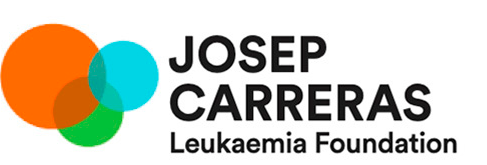Lymphoblastic lymphoma
The information provided on www.fcarreras.org is intended to support, not replace, the relationship that exists between patients/visitors to this website and their physician.
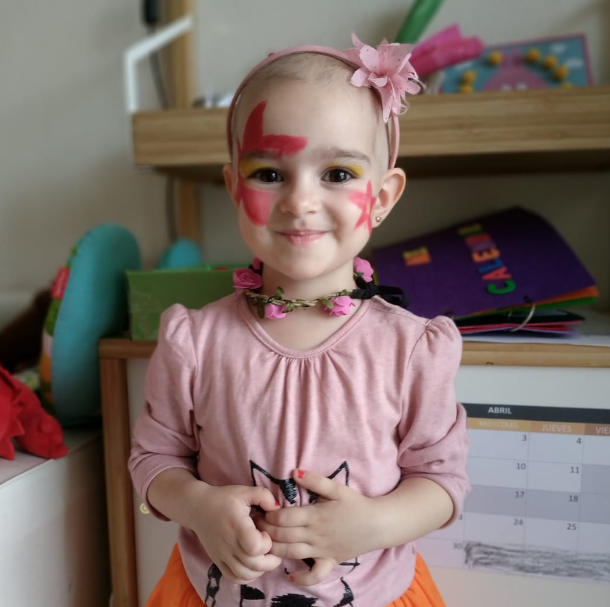
Violeta
Limfoma limfoblàstic T.
“Quan tenia 3 anys em van diagnosticar càncer: un limfoma limfoblàstic. El desembre del 2018 em vaig posar malalta i vaig haver de deixar d’anar a l’escola. Els meus papis van tenir molta por però vam agafar la bestiola a temps i, al costat del gran equip mèdic que em cuida, hem lluitat sense parar!! Jo segueixo jugant, rient i confiant que se segueixi investigant perquè més petits com jo tinguin tota una vida al davant”.
Information reviewed by Dr. Rocío Parody Porras, Doctor specialising in Haematology. Member of the Management of REDMO (Bone Marrow Donor Registry) and of the Foundation’s medical team. Barcelona Medical Association (Co. 35205)
What is lymphoblastic lymphoma and who does it affect?
Lymphoblastic lymphoma is a type of non-Hodgkin’s lymphoma that especially affects children and adolescents, although it can also affect young adults. See Haematological diseases in children
The cancer cells in lymphoblastic lymphoma are very young lymphocytes called lymphoblasts. They are the same cells affected as in acute lymphoblastic leukaemia. In fact, if more than 25% of the bone marrow is made up of lymphoblasts, the disease is classified and treated as acute lymphoblastic leukaemia rather than lymphoma. 80% present as acute leukaemia and the remainder occur with lymph node, bone and skin involvement.
Most lymphoblastic lymphomas develop in T-cells and are called precursor T-cell lymphoblastic lymphoma. T-lymphoblastic lymphomas have a higher incidence in adolescents and young patients and in males.
A small proportion of lymphoblastic lymphomas (10%) develop in B-cells and are called precursor B-cell lymphoblastic lymphomas.
The triggering causes of lymphoblastic lymphoma are not known, although research is being done on genetic mutations, which are responsible for lymphocytes with such a mutation multiplying rapidly and causing lymphoma.
Leukaemia and lymphomas, like other cancers, are not contagious. See section Leukaemia, bone marrow and blood cells.
T-cell lymphoblastic lymphoma often originates in the thymus and forms a mass behind the breastbone and in front of the windpipe. This can cause breathing problems, which may be the first symptom of lymphoma for many patients. It can grow very quickly, so needs to be diagnosed and treated quickly.
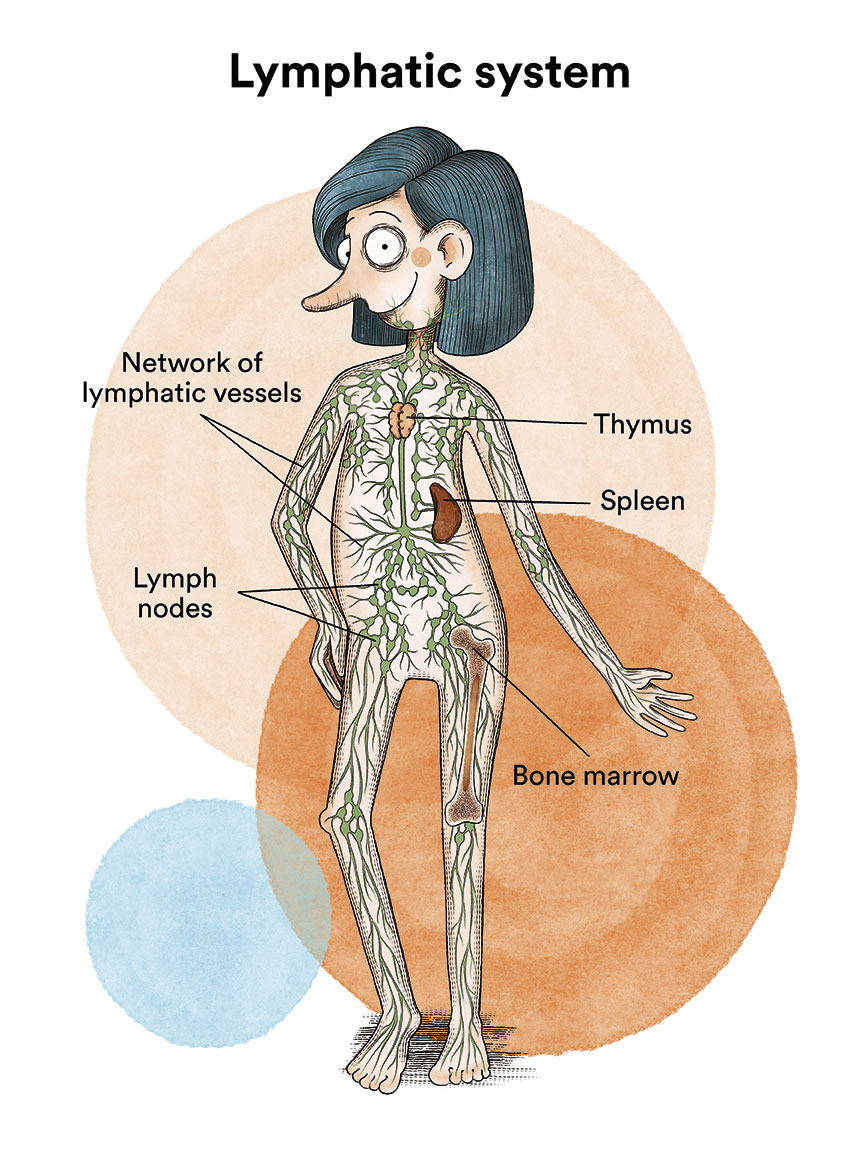
70% of patients at diagnosis may also have lymph node involvement and swelling, especially in the collarbone, neck and armpits. The bone marrow and central nervous system may also be affected, although in fewer patients.
Other symptoms that may occur are common to other lymphomas (see general section on NHL)
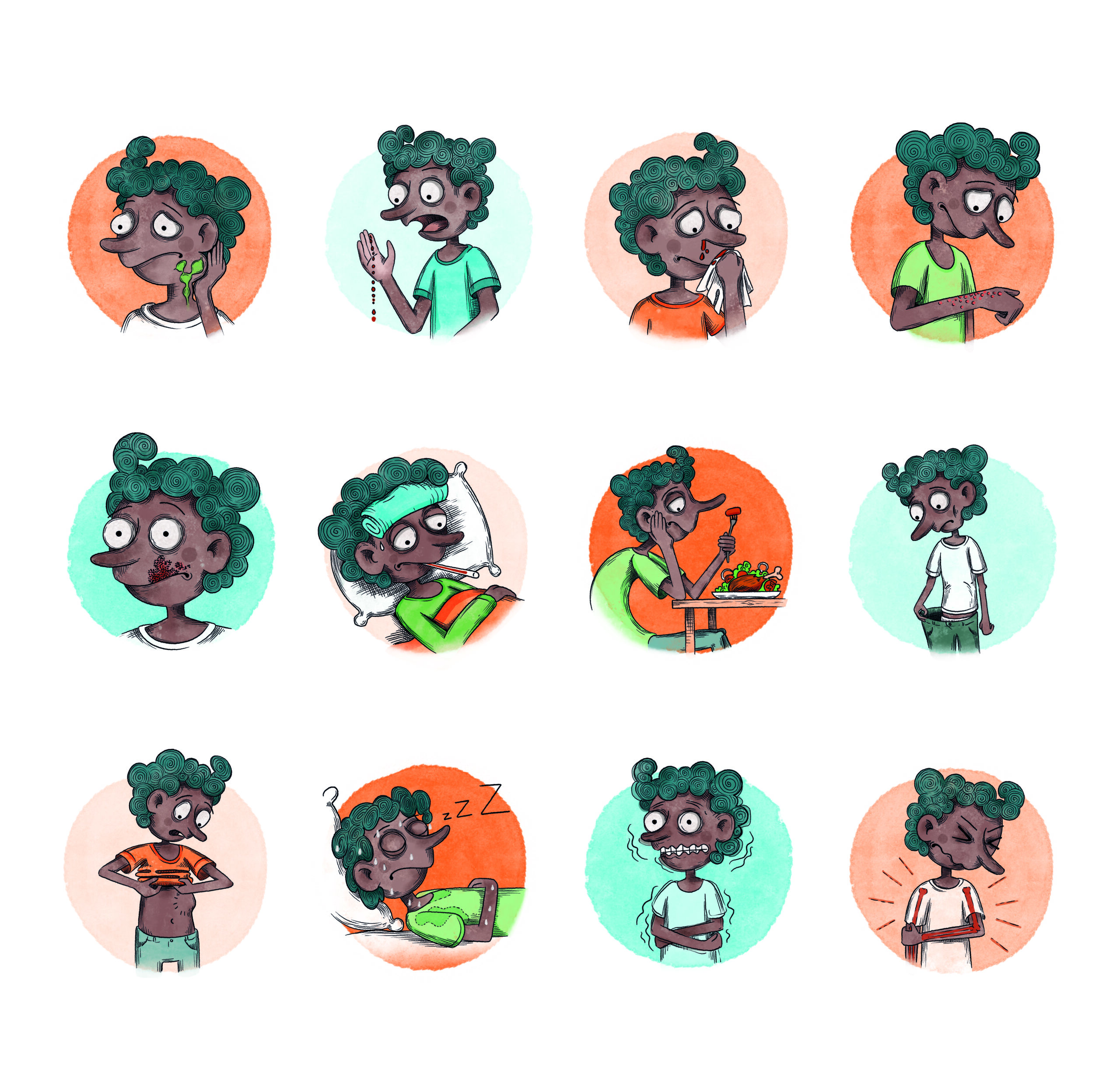
For the diagnosis of lymphoblastic lymphoma, due to its similarity to acute lymphoblastic leukaemia, a bone marrow study (bone marrow aspirate and biopsy, to rule out that it is not really acute lymphoblastic leukaemia) and lumbar puncture to rule out infiltration of the central nervous system, which is relatively common in this type of lymphoma. As with more aggressive lymphomas, the blood tests may show very high lactate dehydrogenase (LDH) and urate levels and, on occasions, evidence of spontaneous tumour lysis (metabolic acidosis, high levels of potassium and phosphate, hypocalcaemia and renal failure of varying degrees) due to the rapid growth and destruction of the cells, especially when treatment is started, given that they are very sensitive to chemotherapy.
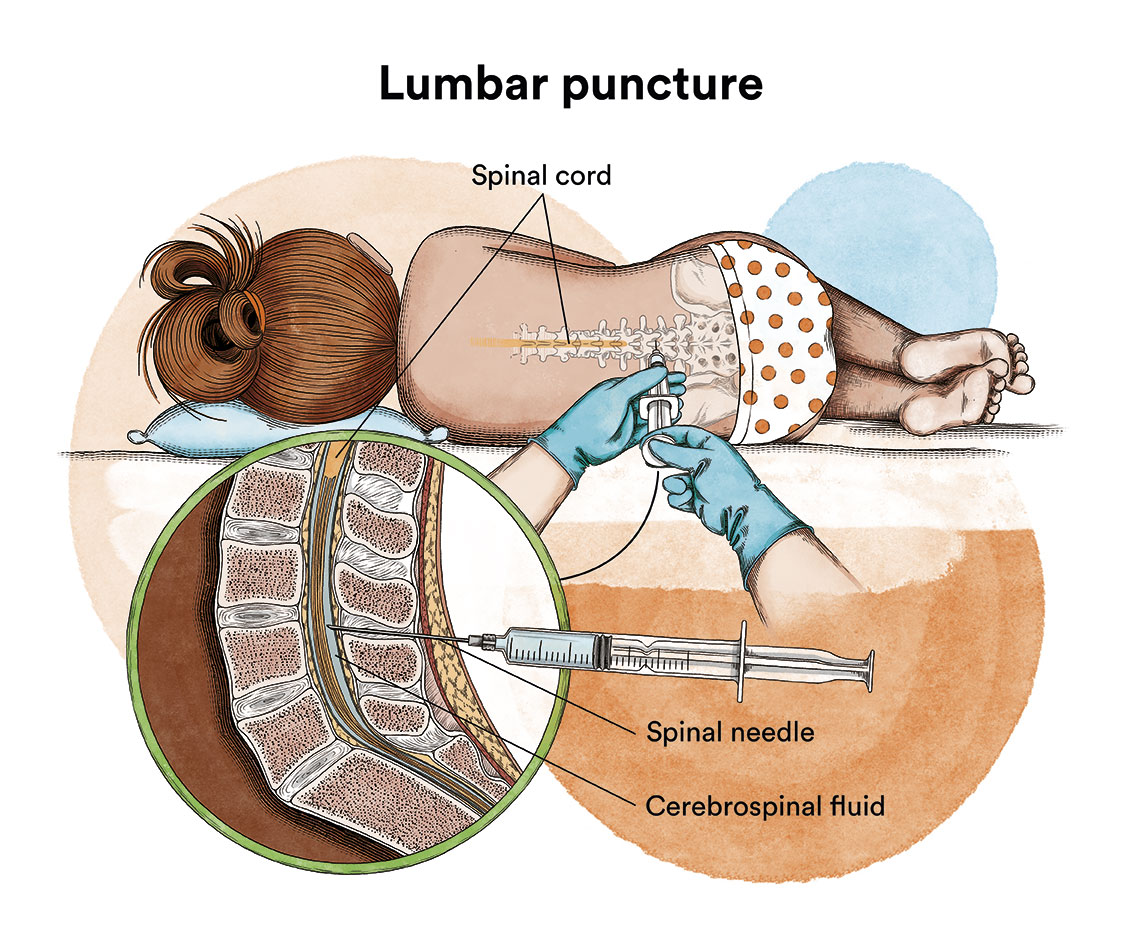
What is the treatment for lymphoblastic lymphoma?
Lymphoblastic lymphoma grows rapidly but its prognosis has changed completely since patients are treated with guidelines similar to those used in acute lymphoblastic leukaemia, with central nervous system prophylaxis.
Treatment is based on intensive chemotherapy and central nervous system prophylaxis with intrathecal chemotherapy (the administration of antineoplastic drugs directly into the cerebrospinal fluid via lumbar puncture). The allogeneic haematopoietic stem cell transplantation would be indicated if the disease relapses.
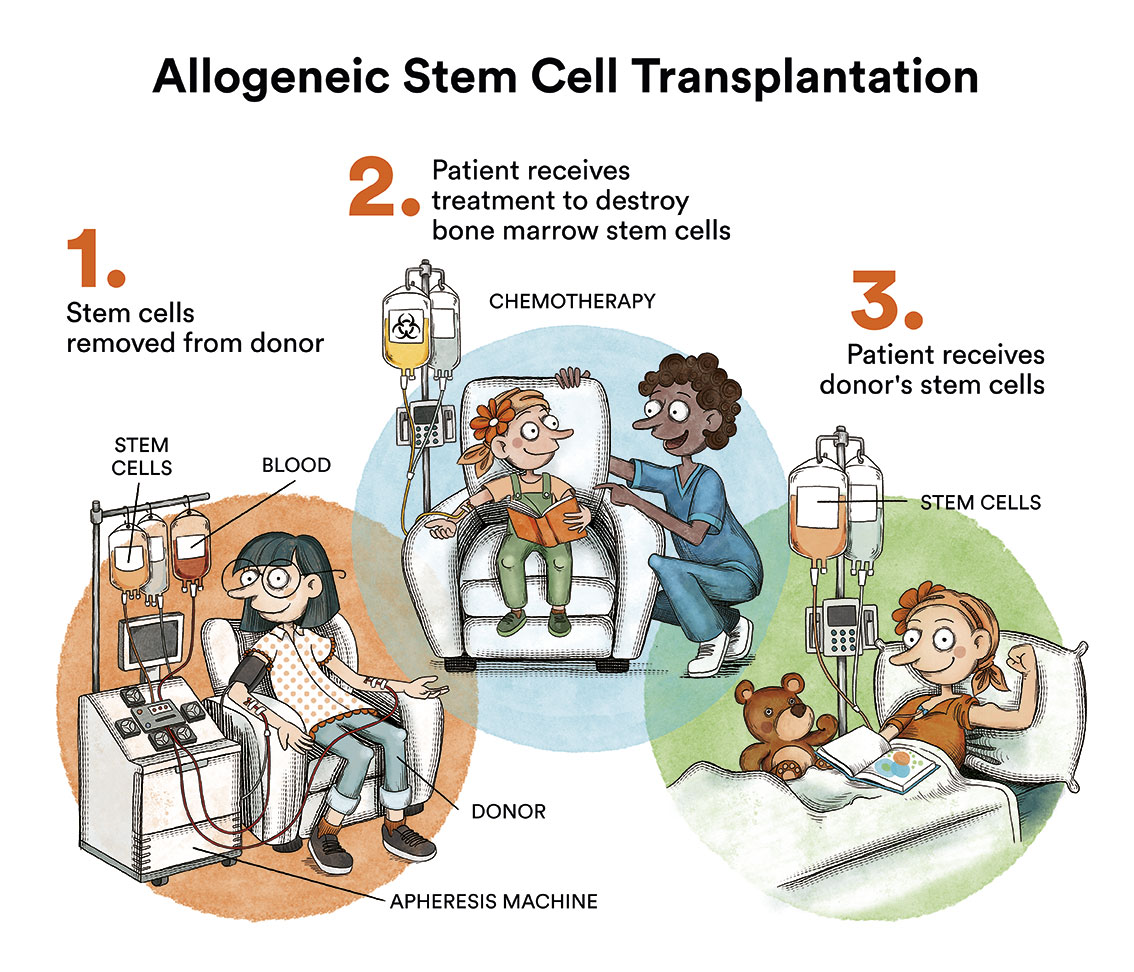
What are the chances of patients with lymphoblastic lymphoma being cured?
 The prognosis of patients with lymphoblastic lymphoma varies substantially depending on several risk factors. Age, the initial number of lymphoblasts, the presence of extramedullary sites (mediastinum, nervous system, testicles), the presence of genetic abnormalities and, in particular, the slowness in obtaining complete remission after initial treatment are predictive of an unfavourable prognosis. However, the most important prognostic parameter at present is the amount of residual disease patients have after induction and consolidation therapy.
The prognosis of patients with lymphoblastic lymphoma varies substantially depending on several risk factors. Age, the initial number of lymphoblasts, the presence of extramedullary sites (mediastinum, nervous system, testicles), the presence of genetic abnormalities and, in particular, the slowness in obtaining complete remission after initial treatment are predictive of an unfavourable prognosis. However, the most important prognostic parameter at present is the amount of residual disease patients have after induction and consolidation therapy.
The prognosis of patients with lymphoblastic lymphoma has changed completely since patients are treated with guidelines similar to those used in acute lymphoblastic leukaemia, with central nervous system prophylaxis. Long survival times of up to 80% in children and up to 60% in adults* have been reported.
*These figures are statistical averages and cannot in any case be applied to individual cases as the course of each patient depends entirely on his or her condition, age and possible complications.
Links of interest concerning medical issues relating to lymphblastic lymphoma in children and teenagers
Lymphoblastic lymphoma (LL). Macmillan Cancer Support
Lymphoblastic lymphoma. The Leukaemia Foundation
Links of interest on other topics related to non-Hodgkin’s lymphoma:
MATERIALS TESTIMONIALS
Pots sol·licitar-nos els llibrets en format paper per a enviament gratuït a l’Estat espanyol a través del correu electrònic: imparables@fcarreras.es
TRASPLANTAMENT DE MEDUL·LA ÒSSIA
- Guia del Trasplantament de Medul·la Òssia. Fundació Josep Carreras (contingut en espanyol)
- Què és l’HLA i com funciona? Fundació Josep Carreras (contingut en espanyol)
- La Malaltia Empelt contra Receptor. Fundació Josep Carreras (contingut en espanyol)
- Història del Trasplantament de Medul·la Òssia. Fundació Josep Carreras (contingut en espanyol)
- Com es realitza la cerca d’un donant compatible anònim? Fundació Josep Carreras (contingut en espanyol)
ALIMENTACIÓ
- Com mantenir una alimentació saludable durant el tractament? Fundació Josep Carreras (contingut en espanyol)
- Guia de nutrició. Leukemia & Lymphoma Society
ALTRES
- Idees sobre què emportar-me a una cambra d’aïllament. Fundació Josep Carreras contra la leucèmia (contingut en espanyol)
- Consells de viatge per a persones amb càncer. Fundació Josep Carreras contra la leucèmia (contingut en espanyol)
- Manual de fisioteràpia en pacients hematològics i trasplantats. Fundació Josep Carreras contra la leucèmia (contingut en espanyol)
- Prevenció i tractament de la mucositis oral. Fundació Josep Carreras contra la leucèmia (contingut en espanyol)
- La higiene bucodental en el pacient onco-hematològic. Fundació Josep Carreras contra la leucèmia (contingut en espanyol)
- Manual fertilitat: Patir un càncer de la sang i ser pare o mare. Fundació Josep Carreras contra la leucèmia (contingut en espanyol)
- La cura de la pell en el pacient onco-hematològic. Fundació Josep Carreras contra la leucèmia (contingut en espanyol)
- Manual Estètica Oncològica. Fundació Josep Carreras contra la leucèmia (contingut en espanyol)
- Leucèmia i sexualitat. Fundació Josep Carreras contra la leucèmia (contingut en espanyol)
- 7 formes de posar-se un mocador. Fundació Josep Carreras contra la leucèmia (contingut en espanyol)
Links of interest: local/provincial or state entities that can provide you with resources and services specialised in leukaemia, lymphoma or cancer patients:
In Spain there is a large network of associations for haematological cancer patients which, in many cases, can provide information, advice and even carry out certain procedures. These are the contacts of some of them by Autonomous Community:
All these organisations are external to the Josep Carreras Foundation.
STATE
- AMILO (Asociación Española de Amiloidosis)
- ACLIF (Asociación para la cura del linfoma folicular)
- AEAL (ASOCIACIÓN ESPAÑOLA DE AFECTADOS POR LINFOMA, MIELOMA y LEUCEMIA)
- AECC (ASOCIACIÓN ESPAÑOLA CONTRA EL CÁNCER). Present in the different provinces and in many municipalities. Contact the nearest branch or call 900 100 036 (24h).
- AELCLES (Agrupación Española contra la Leucemia y Enfermedades de la Sangre)
- CEMMP (Comunidad Española de Pacientes de Mieloma Múltiple)
- JOSEP CARRERAS LEUKAEMIA FOUNDATION
- FUNDACIÓN SANDRA IBARRA
- GEPAC (GRUPO ESPAÑOL DE PACIENTES CON CÁNCER)
- MPN España (Asociación de Afectados Por Neoplasias Mieloproliferativas Crónicas)
ANDALUCÍA
- AECC (ASOCIACIÓN ESPAÑOLA CONTRA EL CÁNCER). Present in the different provinces and in many municipalities. Contact the nearest branch.
- ALUSVI (ASOCIACIÓN LUCHA Y SONRÍE POR LA VIDA). Sevilla
- APOLEU (ASOCIACIÓN DE APOYO A PACIENTES Y FAMILIARES DE LEUCEMIA). Cádiz
ARAGÓN
- AECC (ASOCIACIÓN ESPAÑOLA CONTRA EL CÁNCER). Present in the different provinces and in many municipalities. Contact the nearest branch.
- ASPHER (ASOCIACIÓN DE PACIENTES DE ENFERMEDADES HEMATOLÓGICAS RARAS DE ARAGÓN)
- DONA MÉDULA ARAGÓN
ASTURIAS
- AECC (ASOCIACIÓN ESPAÑOLA CONTRA EL CÁNCER). Present in the different provinces and in many municipalities. Contact the nearest branch.
- ASTHEHA (ASOCIACIÓN DE TRASPLANTADOS HEMATOPOYÉTICOS Y ENFERMOS HEMATOLÓGICOS DE ASTURIAS)
CANTABRIA
- AECC (ASOCIACIÓN ESPAÑOLA CONTRA EL CÁNCER). Present in the different provinces and in many municipalities. Contact the nearest branch.
CASTILLA LA MANCHA
- AECC (ASOCIACIÓN ESPAÑOLA CONTRA EL CÁNCER). Present in the different provinces and in many municipalities. Contact the nearest branch.
CASTILLA LEÓN
- ABACES (ASOCIACIÓN BERCIANA DE AYUDA CONTRA LAS ENFERMEDADES DE LA SANGRE)
- AECC (ASOCIACIÓN ESPAÑOLA CONTRA EL CÁNCER). Present in the different provinces and in many municipalities. Contact the nearest branch.
- ALCLES (ASOCIACIÓN LEONESA CON LAS ENFERMEDADES DE LA SANGRE). León.
- ASCOL (ASOCIACIÓN CONTRA LA LEUCEMIA Y ENFERMEDADES DE LA SANGRE). Salamanca.
CATALUÑA
- ASSOCIACIÓ FÈNIX. Solsona
- FECEC (FEDERACIÓ CATALANA D’ENTITATS CONTRA EL CÁNCER
- FUNDACIÓ KÁLIDA. Barcelona
- FUNDACIÓ ROSES CONTRA EL CÀNCER. Roses
- LLIGA CONTRA EL CÀNCER COMARQUES DE TARRAGONA I TERRES DE L’EBRE. Tarragona
- MielomaCAT
- ONCOLLIGA BARCELONA. Barcelona
- ONCOLLIGA GIRONA. Girona
- ONCOLLIGA COMARQUES DE LLEIDA. Lleida
- ONCOVALLÈS. Vallès Oriental
- OSONA CONTRA EL CÀNCER. Osona
- SUPORT I COMPANYIA. Barcelona
- VILASSAR DE DALT CONTRA EL CÀNCER. Vilassar de Dalt
VALENCIAN COMMUNITY
- AECC (ASOCIACIÓN ESPAÑOLA CONTRA EL CÁNCER). Present in the different provinces and in many municipalities. Contact the nearest branch.
- ASLEUVAL (ASOCIACIÓN DE PACIENTES DE LEUCEMIA, LINFOMA, MIELOMA Y OTRAS ENFERMEDADES DE LA SANGRE DE VALENCIA)
EXTREMADURA
- AECC (ASOCIACIÓN ESPAÑOLA CONTRA EL CÁNCER). Present in the different provinces and in many municipalities. Contact the nearest branch.
- AFAL (AYUDA A FAMILIAS AFECTADAS DE LEUCEMIAS, LINFOMAS; MIELOMAS Y APLASIAS)
- AOEX (ASOCIACIÓN ONCOLÓGICA EXTREMEÑA)
GALICIA
- AECC (ASOCIACIÓN ESPAÑOLA CONTRA EL CÁNCER). Present in the different provinces and in many municipalities. Contact the nearest branch.
- ASOTRAME (ASOCIACIÓN GALLEGA DE AFECTADOS POR TRASPLANTES MEDULARES)
BALEARIC ISLANDS
- ADAA (ASSOCIACIÓ D’AJUDA A L’ACOMPANYAMENT DEL MALALT DE LES ILLES BALEARS)
- AECC (ASOCIACIÓN ESPAÑOLA CONTRA EL CÁNCER). Present in the different provinces and in many municipalities. Contact the nearest branch.
CANARY ISLANDS
- AECC (ASOCIACIÓN ESPAÑOLA CONTRA EL CÁNCER). Present in the different provinces and in many municipalities. Contact the nearest branch.
- AFOL (ASOCIACIÓN DE FAMILIAS ONCOHEMATOLÓGICAS DE LANZAROTE)
- FUNDACIÓN ALEJANDRO DA SILVA
LA RIOJA
- AECC (ASOCIACIÓN ESPAÑOLA CONTRA EL CÁNCER). Present in the different provinces and in many municipalities. Contact the nearest branch.
MADRID
- AECC (ASOCIACIÓN ESPAÑOLA CONTRA EL CÁNCER). Present in the different provinces and in many municipalities. Contact the nearest branch.
- AEAL (ASOCIACIÓN ESPAÑOLA DE LEUCEMIA Y LINFOMA)
- CRIS CONTRA EL CÁNCER
- FUNDACIÓN LEUCEMIA Y LINFOMA
MURCIA
- AECC (ASOCIACIÓN ESPAÑOLA CONTRA EL CÁNCER). Present in the different provinces and in many municipalities. Contact the nearest branch.
NAVARRA
- AECC (ASOCIACIÓN ESPAÑOLA CONTRA EL CÁNCER). Present in the different provinces and in many municipalities. Contact the nearest branch.
BASQUE COUNTRY
- AECC (ASOCIACIÓN ESPAÑOLA CONTRA EL CÁNCER). Present in the different provinces and in many municipalities. Contact the nearest branch.
- PAUSOZ-PAUSO. Bilbao
AUTONOMOUS CITIES OF CEUTA AND MELILLA
- AECC CEUTA (ASOCIACIÓN ESPAÑOLA CONTRA EL CÁNCER)
- AECC MELILLA (ASOCIACIÓN ESPAÑOLA CONTRA EL CÁNCER)
Support and assistance
We also invite you to follow us through our main social media (Facebook, Twitter and Instagram) where we often share testimonies of overcoming this disease.
If you live in Spain, you can also contact us by sending an e-mail to imparables@fcarreras.es so that we can help you get in touch with other people who have overcome this disease.
* In accordance with Law 34/2002 on Information Society Services and Electronic Commerce (LSSICE), the Josep Carreras Leukemia Foundation informs that all medical information available on www.fcarreras.org has been reviewed and accredited by Dr. Enric Carreras Pons, Member No. 9438, Barcelona, Doctor in Medicine and Surgery, Specialist in Internal Medicine, Specialist in Hematology and Hemotherapy and Senior Consultant of the Foundation; and by Dr. Rocío Parody Porras, Member No. 35205, Barcelona, Doctor in Medicine and Surgery, Specialist in Hematology and Hemotherapy and attached to the Medical Directorate of the Registry of Bone Marrow Donors (REDMO) of the Foundation).
Become a member of the cure for leukaemia!

